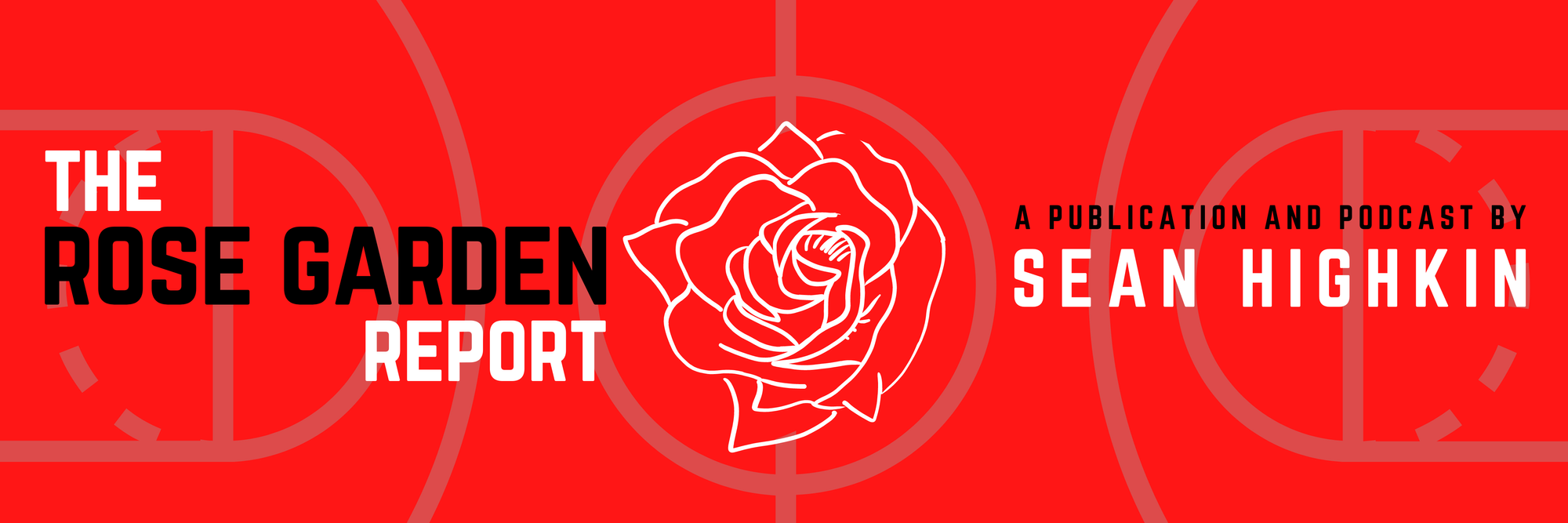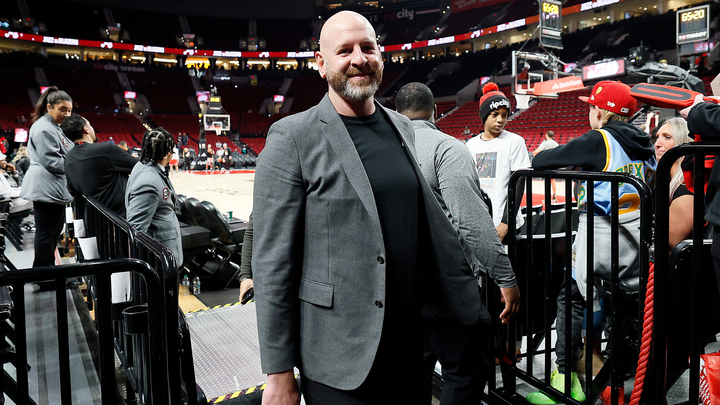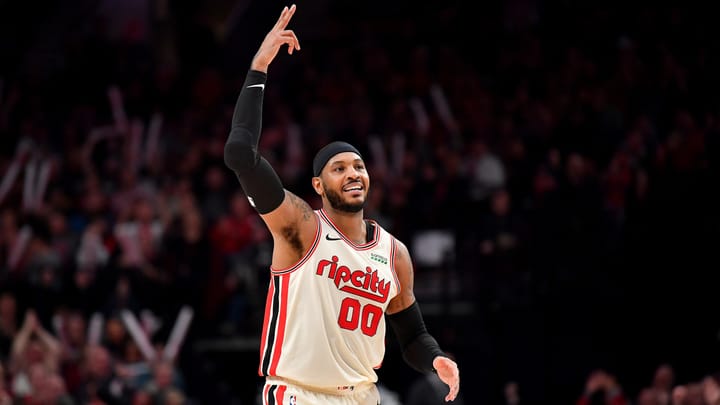MAILBAG: Why Haven't the Trail Blazers Embraced the Tank?
The first of two mailbag columns this week.

As I write this, the Trail Blazers are past the midway point of their seven-game road trip and so far are 3-1 after an impressive showing in an overtime loss to the Cavaliers.
With three games left to go on the trip before they return home Sunday, we’re going to answer some mailbag questions over the next few days.
Why do you think Joe Cronin is not embracing the tank this year like he did the previous 3 seasons?
- Kenny W.
It’s an interesting question, because in theory, if there ever was a time to do it, it would be this year, when you may get the opportunity to draft Cooper Flagg, rather than last year, which even at the time was seen as a weak draft class.
I don’t think there’s any one reason why the Blazers haven’t gone all-out for the best lottery odds, even though that clearly was their goal and hope at the beginning of the season.
One thing I do think is telling, though, is Cronin’s answer at his post-trade deadline press conference (which took place when they had won nine of their last 10) to a question about whether the team would push for the play-in:
“I think it would be unfair to take it away from them.”
They’d love to have better lottery odds, but after barely getting any meaningful development last season due to injuries, the main thing the organization wanted to see this year was steps forward by some of the young players they’d drafted or traded for. They’ve gotten that, particularly from Scoot Henderson, Deni Avdija and Toumani Camara.
If a group of guys like this one, most of whom have never won anything in the NBA, have a sustained stretch of winning and playing together “the right way,” how does it look if the general manager comes in one day and says, “Hey, guys, we’re going to start making up injuries for all our best players. Hope you enjoyed the last two weeks because the rest of the season doesn’t matter”?
They’ve done that the last three years in a row after the deadline, and it hasn’t exactly led to the kind of lottery luck it was meant to. I thought it was a bad look when they did it in previous years, but at least they didn’t have anything positive going on that would be interrupted by, as you put it, “embracing the tank.” Last year’s Blazers team won three games in a row one (1) time all season and got blown out by 60 twice. It didn’t really make a difference if they were trying to win or not.
Legitimate positive forward progress like what they showed in January is a lot tougher to sell throwing away for the sake of maybe getting back to sixth or seventh in the lottery standings instead of ninth, or wherever they ultimately end up.
If the unexpected winning had ended after the first four-game streak in mid-January, they probably would have started shutting guys down by now as expected. But they kept winning after that, and at that point, they’re so far out of the running for the top lottery odds, they don’t really have anything to lose by letting their guys try to win the rest of the way. The experience of playing in games with stakes in March (and maybe even into April) is worth a couple of extra lottery combinations.
I also think Chauncey Billups’ lame-duck contract status has a lot to do with how this season has gone. Why should Billups have any motivation to help the Blazers tank and put extra losses on his coaching record when he’s not going to be the one that gets to coach Flagg if they’re lucky enough to get him? He’s going to play the players he feels will help win games, because he’s taken a lot of losses over the last three-plus years and has to look out for his own future coaching prospects by showing other teams he can win.
I don’t think the Blazers are going to actually make the play-in. As of this writing (Sunday night), they’re five games back from 10th in the loss column with 21 games left to play and a pretty tough schedule ahead down the stretch. Maybe once they’re mathematically eliminated, they’ll start shutting guys down. But if they were really going to commit to that, the time to do it would have been a month ago.
Now that the team has finally assembled a roster that probably would have been successful around a star like Dame, do you sense that there is an opportunity to lean into a more win-now approach? The team doesn't seem like it’s bad enough to follow a tanking for a pick approach, and I wonder if there is opportunity to take a shot on a potential star (Zion Williamson maybe) paired with the current roster to be relevant sooner than later?
- Jason N.
This season has definitely proven that the Blazers aren’t bad enough to follow the traditional “be bad until you get enough high draft picks to be good” approach to rebuilding. Two of the young guys they’re building around, Avdija and Camara, would be starters on most playoff teams today.
Because of that, it’s more likely that they try to do something big in the offseason than it is that they go into next season intending to tank again, like they did this year before they won too much to make that realistic. We already saw last summer with the Avdija trade that Cronin isn’t afraid to include future picks in a deal, which rebuilding teams usually don’t do, if the player makes sense.
I don’t know about Williamson specifically being the target (a lot of medical risks there), but you’ve got the right idea.
With Jerami Grant’s declining play and ascending contract, will he have much of a market this summer or is this another situation where the Blazers front office held on to a player for too long? I know teams needs can change in instant but I’m having a hard time finding a trade partner for Grant, especially with the new CBA.
- Jon B.
You may be right. The one thing I’ll say about this summer, though, is that with the NBA’s new TV deal kicking in, the salary cap and luxury tax are both expected to increase by 10 percent over what it is this season. So that’s going to take all but the highest-spending teams out of the tax, making it easier to move big salaries like Grant’s—and making his salary a smaller percentage of the cap.



Comments ()